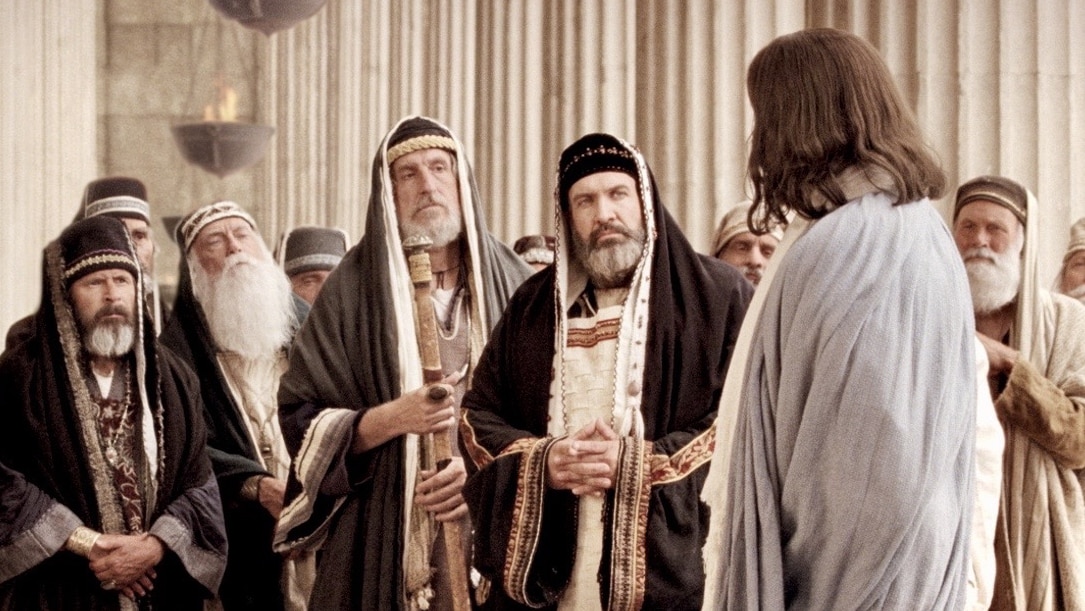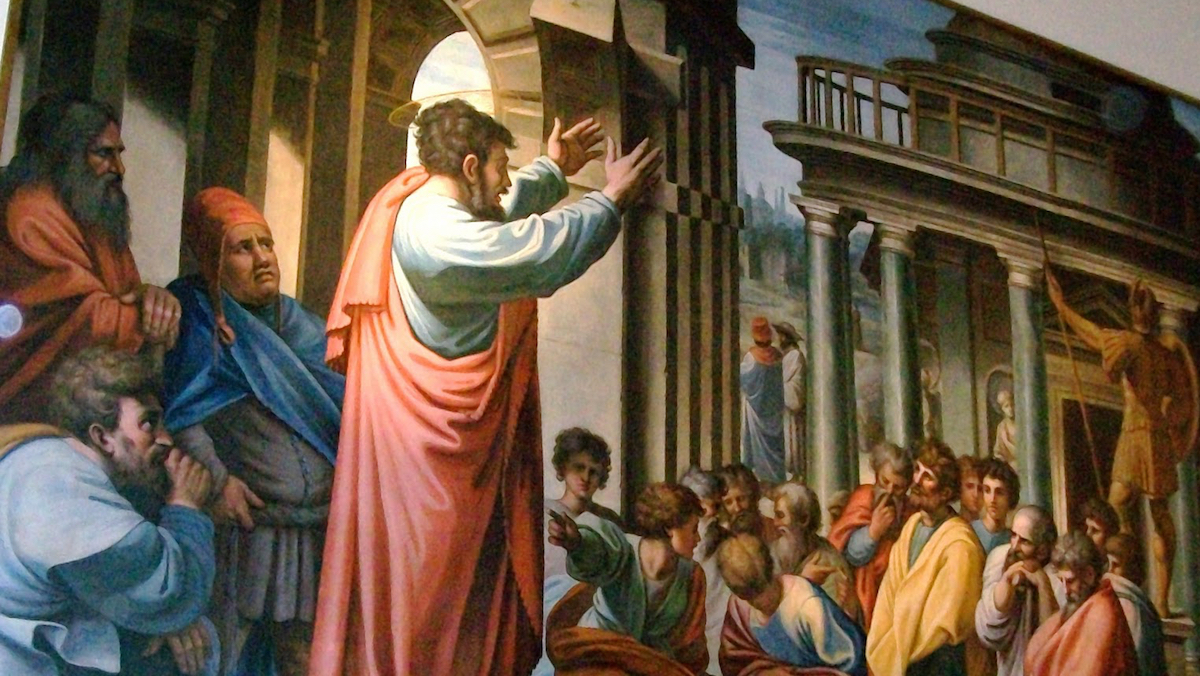The National Archives in Washington, D.C. has an excellent online gift store. Recently, I stumbled across a collection of “red tape” souvenirs in the form of pendants and cufflinks and paperweights. The words on the paperweight are interesting:
“Enclosed is a piece of authentic red twill tape once used to bind U.S. Government Documents. To have access to a document, you would have to cut through the Red Tape.”
On this 30th Sunday of Ordinary Time, I mention this because, in a certain sense, it describes what has unfolded in this short passage from the Gospel of Matthew (22:34-40). Jesus finds Himself surrounded by religious bureaucrats intent upon quizzing Him regarding the “Rules of God.” Now if red tape existed two-thousand years ago, these Pharisees would have found themselves bound by it. With each wrapped so tightly in red tape, they would take every measure to not stretch out their arms too wide. In other words, they would do everything in their power to not break the tape.
With their hearts set upon tripping Jesus up, they proceeded to ask Him which commandment in the law was the greatest. And as we just heard, Jesus condensed the 613 Jewish laws down to 2.
“You shall love the Lord, your God, with all your heart, with all your soul, and with all your mind. This is the greatest and the first commandment. The second is like it: You shall love your neighbor as yourself. The whole law and the prophets depend on these two commandments.”
Why does Jesus do this? Why does Jesus condense the many laws down to just two? For thousands of years, the reasons have been discussed by theologians and scholars. While some might contend that Jesus was “gutting the proverbial rule book,” I think what He was doing was shifting the focus to that which really mattered, namely that we cannot love God unless we love our neighbor. By doing this, Jesus illuminated that which was most missing in their lives.
In the Letter of 1st John, we read that “Whoever is without love does not know God, for God is love.” (4:8) A few verses later, we are told “Beloved, if God so loved us, we also must love one another.” (4:11) Through words, love is difficult to explain. However, when we see it, we know it. It is not difficult to comprehend.
Which brings me to the story of a distinguished bishop who was preaching one morning on St. Paul’s First Letter to the Corinthians (13:1-13). For those of us who’ve attended weddings, we are familiar with these verses and Paul’s insights on love.
It is patient. It is kind. It does not rejoice over wrongdoing. It bears, believes, hopes, and endures all things. It never fails.
That morning, while attempting to describe love through mere words, it was though the Holy Spirit interrupted him through the cry of a small infant being held by his mother. And with great suddenness, the bishop stopped and turned toward the mother and child and said: “Now, there is love.” And with these words, the entire congregation took note and shifted their focus. And the bishop sat down.
My own experience with love came in my 30s at the delivery of my first-born daughter, a story I shared with her just a few weeks ago. I noted that up until that time, I thought I knew what love was.
Until the moment of my daughter’s arrival into this world.
At her birth, I can still remember gazing upon her and knew in that instant that my heart and outlook regarding that which was “important” in life had changed. I had been transformed by love. From that moment, everything was different. I was no longer living for myself. I was living for another. It was though my entire will had become “other centered.” To describe this, had a doctor entered the delivery room and explained to me that I would have to give up my life in order that my daughter might live, my reply would have been an instant—yes! On that blessed day, I came to learn the true meaning of love; namely that love is sacrificial.
“For God so loved the world that he gave his only Son, so that everyone who believes in him might not perish but might have eternal life.” (John 3:16)
In our Gospel message, Jesus challenged the religious bureaucrats of His day regarding their attempts at defining to the “Nth” degree what it means to follow God. Today, He challenges you and me to cut the red tape that binds our lives so that we might focus on that which is truly important: love.
May we always remember that God loved us first and each day continues to unfold the mystery of His love for us— through our relationships with our brothers and sisters. Through the Eucharist, Our Lord feeds us with His sacrificial love and eternally reminds us that we are surrounded by His love. He challenges us to express this love, His love, in our families and communities. This week, may we consider the ways in which we might go the “next step” toward loving God and our neighbors.








